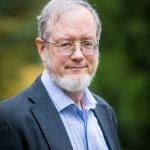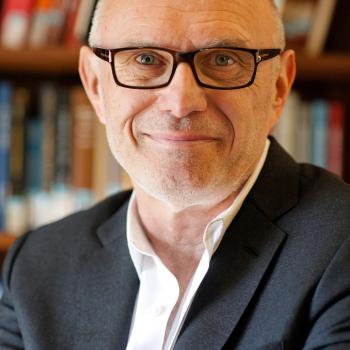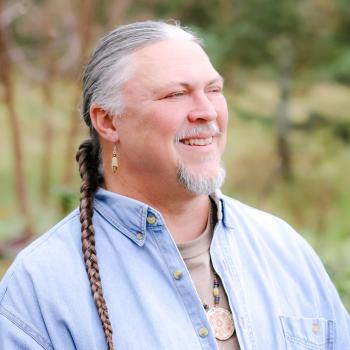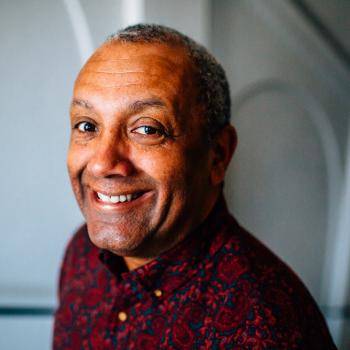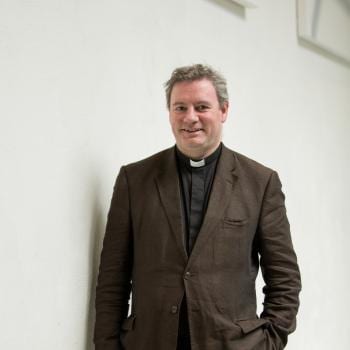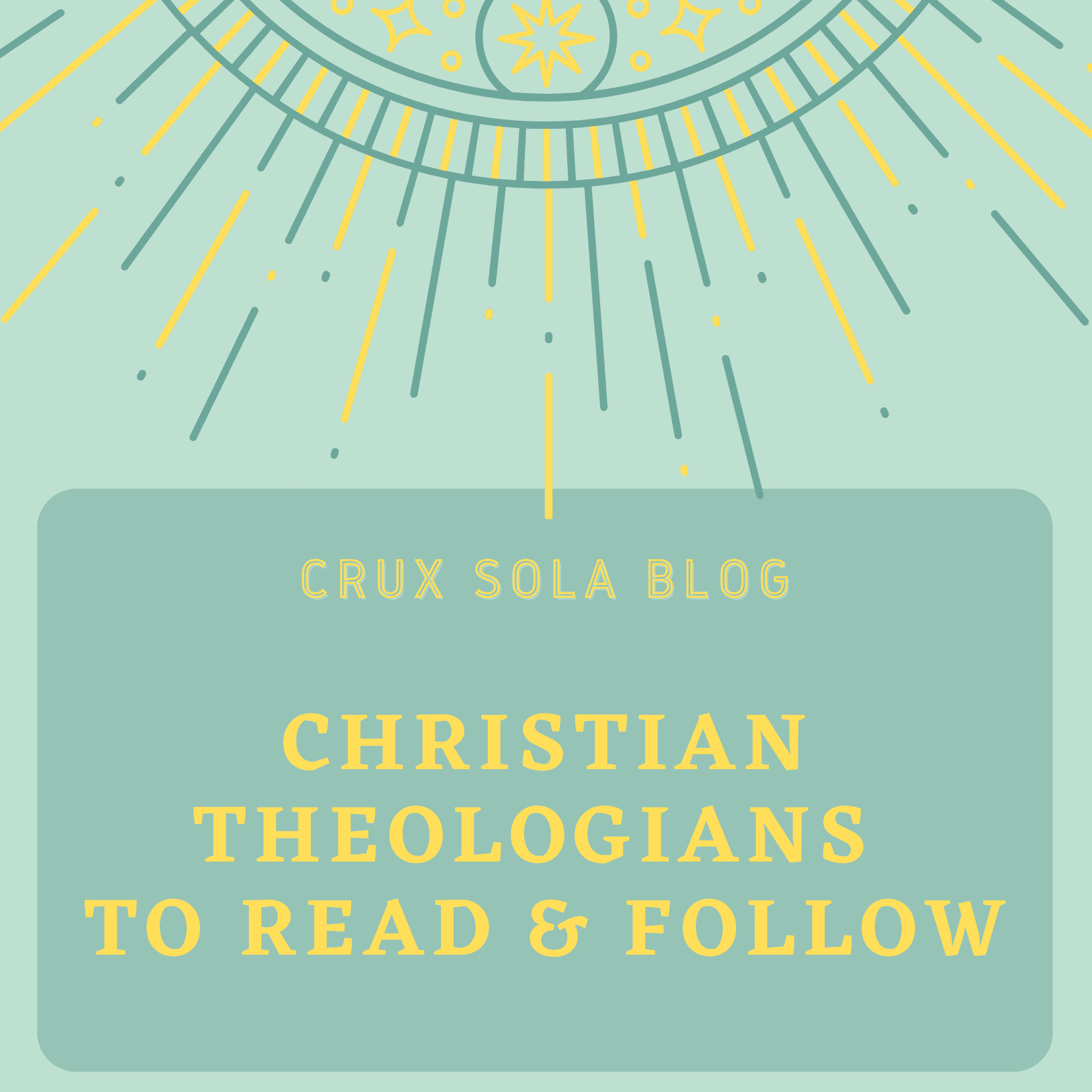
Adonis Vidu, Professor of Theology, Gordon-Conwell Theological Seminary
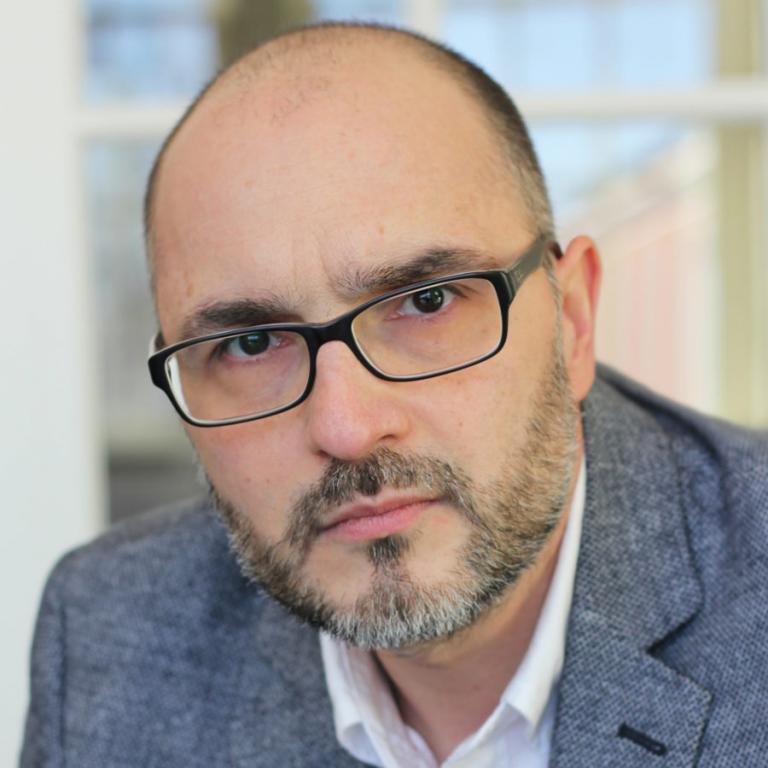
Why do you love teaching and researching about theology?
Because it is perhaps the one discipline where the object of study talks back, becomes a subject, and I instead become one who “is known” and not simply a “knower”. Thus teaching theology means leading into contemplation, seeking union with God through knowledge. There is no tension here with the idea of critical scholarship, which is supposedly objective and dispassioned. Of course, this lends itself more to a seminary than a university context, at least in terms of teaching.
What is one “big idea” in your scholarship?
I am a theologian engaged in the retrieval of two important elements of a classical doctrine of the Trinity. The first one is the doctrine of inseparable operations, which seems to be generating a lot of interest in the past few years; the second is the doctrine of the divine missions, which is a reflection on what it means for the transcendent, immutable and simple persons of the Son and Spirit to be sent into the world. Even though the doctrine of inseparable operations is going through something of a revival of interest, it is not always easy to see how it is consistent with a number of key doctrinal affirmations, such as: the incarnation of the Son alone; the inter-personal relations and communication between the triune persons in the economy; Christ’s obedience to the Father; the apparent ‘substitution’ taking place between Christ and the Spirit in the sequence of Ascension/Pentecost. In addition to that there are fears that observance of this ancient rule of doctrine slides back into modalism, etc. I have made it my work to engage with each of these difficulties (and others). More work must still be done, but there is increasing recognition that paying attention to this rule can lead to some fresh insights for theology.
Who is one of your academic heroes and why do you admire them?
It’s hard to choose a single individual – I’ve never been a one-theologian kind of guy and I typically recoil from any kind of ‘ism’ (Calvinism, Barthianism, etc.). I try to model different things from different people: the combination of scholarship and prayer in my fellow Romanian Dumitru Staniloae and in Hans Urs von Balthasar, the poetic insightfulness of Katherine Sonderegger, the clarity and precision of Thomas Aquinas.
What books were formative for you when you were a student? Why were they so important and shaping?
J. N. D. Kelly’s Early Christian Doctrines was my introduction into patristic theology. Although I eventually pushed beyond both, Colin Gunton’s The Promise of Trinitarian Theology and Catherine M. LaCugna’s God for Us were my first guides into trinitarian theology. Anthony Thiselton, who was to become my Doktovater at Nottingham, sold me on the importance of philosophical hermeneutics very early on, through his The Two Horizons. Through that book I discovered Wittgenstein and he has remained formative in numerous ways.
Read Vidu’s Work
Atonement, Law, and Justice: The Cross in Historical and Cultural Contexts (Baker Academic, 2014)
The Same God Who Works All Things: Inseparable Operations in Trinitarian Theology (Eerdmans, 2021, forthcoming March 4th)
Follow Vidu Online
If you ran into me at SBL, and you didn’t want to talk about theology, what would you want to talk about?
It wouldn’t be politics or baseball, I can tell you that. I am big into movies, but I tend to stay away from the ‘heady’ ones, preferring lots of action and suspense. (Wittgenstein almost exclusively watched Westerns, you see…) I appreciate good science fiction, both books and movies. My all time favorite is Cixin Liu’s The Three Body Problem. We could also talk about food, fishing, good music (I Spotify a lot). In sports, besides rooting for the Patriots, I enjoy watching boxing and Formula 1.
What is a research/writing project you are working on right now that you are excited about?
Having almost finished a manuscript for a book on the divine missions (The Divine Missions: An Introduction, Cascade/Wipf&Stock forthcoming), I am embarking on a project that relates the Trinity to Christian experience. I’d like to explore and show how this most fundamental of doctrines must be understood experientially and never simply theoretically. The project entails the contribution made to trinitarian theology by mystics, and the centrality of certain practices such as prayer and sacraments for understanding the Trinity. I would hope the result will yield a new form of pedagogy for teaching the trinity, overcoming the theoretical/practical, or academic/ecclesial dualisms. One of the most exciting discoveries I made during my research on the trinity was the self-involving nature of the knowledge of God. Augustine, Calvin and Barth understood that so well (although I wish Calvin had made more of the trinitarian aspect of this). That is, the distinctions between the triune persons are most transparent not when God is regarded as object, that is, when studied from an epistemic distance, but when one allows oneself to be drawn into the life of the Trinity through prayer and contemplation, when one is changed. The distinctions between the Son and the Spirit are clearest when their missions, especially their invisible missions, their indwelling, transform the knower. One reason Jesus was not recognized as God by many around him is that their eyes had not been opened by the Spirit. Knowledge of the Trinity starts with a form of tasting, and culminates with an eschatological banquet.









